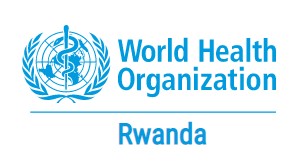Rwanda’s Swift Response to the Marburg Virus Disease Outbreak: Exemplary Coordinated Partnerships in Action
In September 2024, Rwanda experienced its first-ever filovirus outbreak of Marburg Virus Disease, a severe and often fatal illness with case fatality ranging between 24% to 88%. The outbreak was officially declared on 27 September 2025 following investigations into a cluster of unexplained illnesses and deaths in Kigali. The situation posed a formidable public health challenge, with healthcare workers among the most affected, highlighting critical gaps in infection prevention and control (IPC) measures within healthcare settings.
A Unified Response Driven by Strategic Partnership
Led by the Ministry of Health, Rwanda’s response was marked by rapid coordination and decisive action, made possible through the timely support of local and international partners. The collaborative efforts of the World Health Organization (WHO), the European Union Humanitarian Aid (ECHO), the UK’s Foreign, Commonwealth and Development Office (FCDO) and other development partners, in support of the Government of Rwanda, enabled the swift mobilization and deployment of required teams of experts, the procurement and distribution of critical supplies, and the rapid capacity building of frontline workers and other health professional, all within days of the outbreak confirmation.
WHO played a crucial role by providing immediate technical and operational assistance, which included personal protective equipment (PPE), laboratory testing kits, case management tools, and logistical support. Additionally, the organization collaborated closely with national authorities to enhance outbreak coordination, strengthen surveillance systems, and develop effective risk communication strategies.
Dr Brian Chirombo, WHO Representative to Rwanda, highlighted the crucial role of timely interventions, stating, “The generous funding from the ECHO and FCDO among other partners, was instrumental in ensuring the availability of essential supplies and empowering health workers during a critical time. This support enabled swift laboratory testing, enhanced protection for healthcare workers, and the delivery of quality patient care, ultimately resulting in improved health outcomes.”
Rapid Deployment of Essential Experts
At the request of Ministry of Health, WHO mobilized a diverse group of highly renowned technical experts to bolster Rwanda’s response across several critical areas. These areas included coordination, surveillance, laboratory operations, clinical case management, IPC, mental health and psychosocial support (MHPSS), logistics, and risk communication and community engagement (RCCE). These deployments ensured that national teams had access to top-tier expertise and operational guidance tailored to the specific needs on the ground.
Additionally, 39 professionals from Liberia, Sierra Leone and Uganda with experience in successfully managing filovirus outbreaks, were brought in through WHO’s AVoHC-SURGE programme, to work alongside Rwandan teams. Their contributions were especially crucial given the loss and illness of many local health workers early in the outbreak. These frontline experts played a pivotal role in addressing human resource gaps, reinforcing IPC measures, and enhancing service delivery.
This deployment exemplified the power of South-to-South collaboration. Regional solidarity, shared experience, and cultural familiarity enabled swift, effective and contextually appropriate responses—offering a compelling model for future emergency preparedness and response efforts across Africa and beyond.
Scaling Up Training and Readiness
With the support of WHO, funding from ECHO and FCDO and in collaboration with other partners, the Ministry of Health implemented extensive training initiatives for healthcare workers across all levels of the health system—from specialized hospitals and district hospitals to community health centers, Points of Entry (POEs), and the broader community. These initiatives focused on early detection, case identification, safe patient handling, best practices in IPC, and community engagement. Additionally, updated guidelines and standard operating procedures were developed and disseminated, ensuring a consistent and harmonized approach to containment and protection. This comprehensive strategy particularly benefited healthcare workers, enhancing the quality-of-service delivery.
Exemplary Partnership in Action
Rwanda’s successful containment of the Marburg Virus Disease outbreak, achieving the lowest case fatality rate of 22.7% among Marburg outbreaks in Africa, is a testament to the power of strong, coordinated partnerships. The collaborative response—led by the Ministry of Health and supported by WHO, ECHO, FCDO and other partners—demonstrated how strategic collaboration can transform a potential crisis into a controlled and timely response.
This experience underscores the critical importance of continued investment in health security, preparedness, and resilience. As Rwanda builds on the lessons learned and strengthens its public health systems, the Marburg response stands as both a national achievement and a regional model for collective action in the face of future infectious disease threats.
Distributed by APO Group on behalf of World Health Organization (WHO) – Rwanda.


